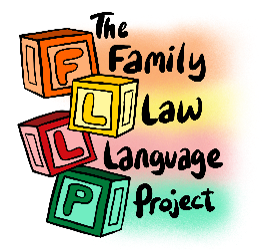Common Law Partnerships? Busting the Myths
By Darcy Gee of Family Law Partners
In the UK, the term “common law partner” is frequently used to describe cohabiting couples who are not married or in a civil partnership. With a major increase in cohabiting couples in recent years, it is no wonder that outdated cohabitation laws are at the forefront of every family lawyer’s mind. There appears to be a widespread belief that if a couple live together long enough they become “common law partners” therefore obtaining similar rights to married couples or people in a civil partnership.
In its 2022 report, ‘The rights of cohabiting partners’, the House of Commons Women and Equalities Committee said the consequences of believing in the common law marriage myth could have profound consequences for cohabiting partners, “many of whom do not realise the reality of their situation until it is too late”. In the eyes of the law, a “common law partner” is an unofficial term only and has no legal rights. This results in unmarried couples not having the same rights as married couples, regardless of the length of time they have been in a relationship or whether or not they have children. The idea of Common Law Partners Right is in fact a myth, it is to be noted that the current law on cohabitation is worryingly out of date. This causes particular hardship for cohabitants who have made career or financial sacrifices for the sake of their relationship. So, the big question is, what may you be entitled to as a cohabiting couple?
Property Ownership
There is a generalised idea that even if the property is not owned in both names, both parties have an equal share in the property. The ownership of property can be a particularly troublesome issue when unmarried couples separate, and there can be a difference between the legal ownership of the property and the parties’ respective beneficial interests. The area of law that governs property in relation to Cohabitating Couples is The Trusts of Land and Appointment of Trustees Act 1996 or more commonly known as ‘TOLATA’. It may be possible to establish a beneficial interest in a property by demonstrating the following factors: you can prove it was intended that you would have a share of the property, or you have made significant financial contributions towards the property, such as mortgage payments or significant improvements to the home. This area of law is complex and obtaining specialist advice as early as possible is recommended.
Children
As more couples are deciding to start a family without getting married, it is important for both parents to understand the law in relation to their children. The area of law which governs this is the Children Act 1989. It covers child arrangements which broadly apply to both married and unmarried couples equally. A key area to note is unmarried fathers should be aware of the fact that they will not automatically hold parental responsibility for their children. Mother’s automatically have parental responsibility, while unmarried fathers must either be named on the birth certificate, obtain a court order, or enter into a parental responsibility agreement with the mother’s consent.
Unlike married couples, unmarried couple have no entitlement to claim financial support from each other on separation such as spousal maintenance, however cohabiting couples are entitled to payments for the benefit of any child/children. The payment of child maintenance for the benefit of any child/children remains. Failing an agreement between parents, a claim can be made to the Child Maintenance Service for a child maintenance calculation to be undertaken. Certain individuals will also be able to claim for financial support under Schedule 1 of the Children Act 1989 which can include periodical payments, a lump sum, or settlement of a property, however it Is important to note that not everyone will be entitled to make a claim.
Pensions
A common theme seems to be that cohabiting couples believe that they are entitled to their partners pensions. The truth, for cohabitating couples, is that you are in fact not entitled to any of your partner’s state pension. When it comes to your partner’s occupational pension, you don’t have a right to claim on separation. However, an unmarried partner can choose who will receive the pension pot if they die before it is utilised. It's also possible for the pension holder to arrange a ‘survivor pension’ for an unmarried partner who is financially dependent. If you have any concerns or queries about pensions, it is recommended that you obtain advice from a Pension Actuary.
Inheritance
Sadly, a lot of cohabiting couples are realising too late that there is no formal legal relationship between cohabiting partners. Therefore, when it comes to inheritance, it follows that there is no legal right for cohabiting partners to inherit the other’s estate if one partner were to die intestate (without a will). This is regardless of whether they have children or the length of time they’ve been in a relationship. A surviving partner may be able to legally claim financial assistance, if they haven’t been factored into the deceased’s will and it is recommended that you seek specialist advice from a private client lawyer on what is appropriate for your personal circumstances.
Although this blog may not have been what you wanted to read, it is important that cohabiting couples are made aware of their rights. It is important to note as with all family law issues everything will depend on individual situations and circumstances.
As this blog shows, the language used in family law is really important. Using incorrect terms such as “common law partner” can lead to misunderstandings and leave people very vulnerable in the event of a relationship breakup.
Darcy Gee - Family Law Partners
